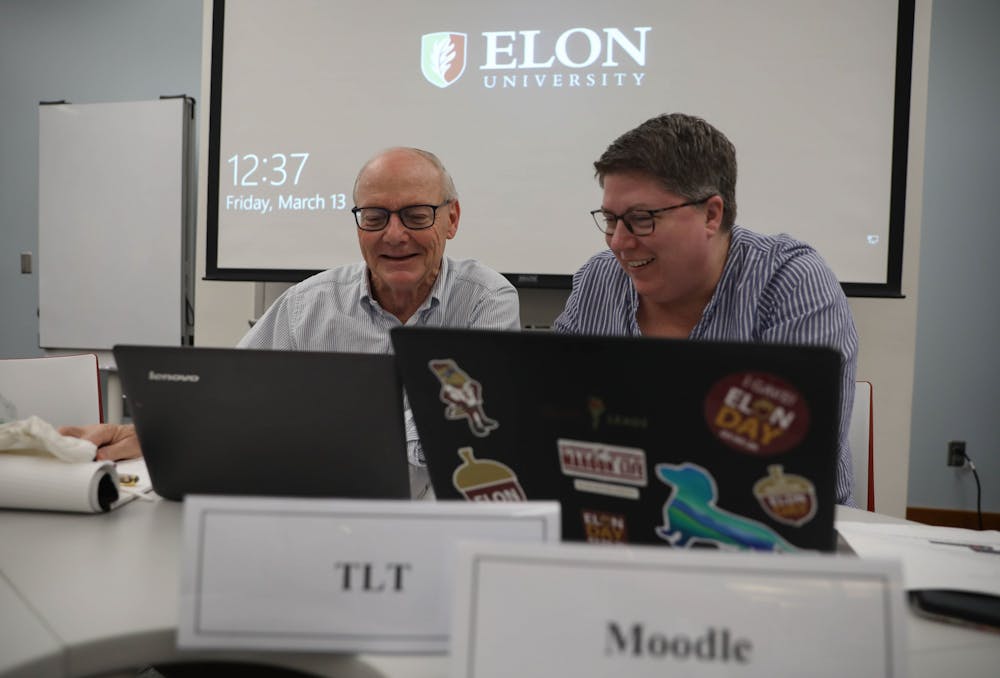Updated as of Wednesday, March 11 at 9:08 p.m. to include information about virtual appointments with the Writing Center.
Classes will be moving online for two weeks following spring break because of the coronavirus, which is also known as COVID-19. According to Christopher Waters, associate vice president of information technology and chief information officer, Information Technology is working to equip professors with the ability to teach online. He said the office will be open to assist professors.
Elon University currently uses Moodle as its learning management system. Waters said over 84% of faculty are on Moodle, but there are resources available for those who don’t use Moodle online at the university’s coronavirus information website.
“There’s either additional tools that are available, ideas or suggestions to move your class to a little bit more of an online environment,” Waters said. “As well as we’re seeing some schools and departments through their dean and department chairs share other resources.”
The School of Communications held an informational session — led by associate professor of communication design Ben Hannam — about resources faculty can use to teach online.
According to Waters, the Teaching and Learning Technologies department — which is under IT — is available for remote learning from 8 a.m. to 5 p.m. on Friday, March 13.
Teaching and Learning Technologies declined to comment on the logistics of remote learning, but their website says the office can help by answering faculty questions, creating course materials and providing tips for teaching and learning online.
Because students may be located in different time zones, Waters said that the faculty members will have to decide whether they will hold the class through live streaming capabilities.
"I can see faculty reaching out to their students and saying 'Where are you?' It's all a part of that engaged experience," Waters said.
According to director of the writing center, Julia Bleakney, the center will be open during the two week's following spring break. Students will be able to schedule virtual appointments with the center over those two weeks.
For classes that require certain equipment like performing arts, labs and more, Waters said faculty members are sharing ideas on collaborative tools and lessons that can be implemented remotely.
For faculty like associate professor of biology Mathew Clark, who teaches a human anatomy laboratory that requires hands-on experience, he said he’s prepared to make the online transition, but didn’t find out about classes going online until students did today.
“In human anatomy it’s obvious that we have the human donor, we’re very privileged here at Elon to have that opportunity for students in the laboratory,” he said. “However we’re prepared with this change because we have software that is very useful for students in the laboratory.”
Clark said while this “health crisis” — now classified as a pandemic by the World Health Organization — is a negative situation, he’s trying to find the positive in it for his students.
“We have to take all the negatives and find the good in them, and then as faculty — which Elon has some extremely talented faculty — take those negatives and turn them into positives so students can get a positive experience out of this crisis and realize it doesn’t just affect us it affects the world,” Clark said.
Emery Eisner and Maria Ramirez contributed to the reporting of this story.


